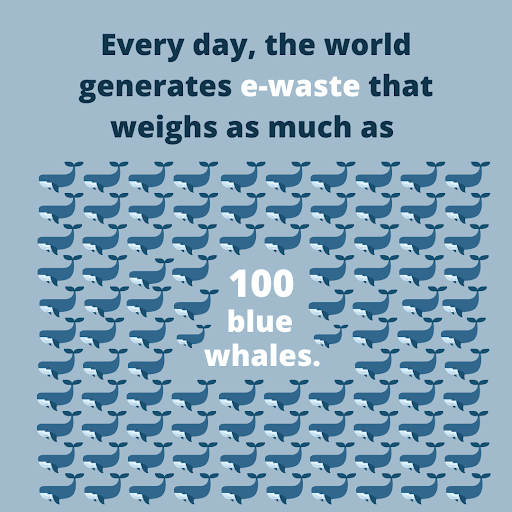
Nicole Walter
Former Advocate, WashPIRG
International Repair Day reminds us why repair is essential for the environment
Former Advocate, WashPIRG
It’s common-sense: When something breaks, you fix it. But due to a combination of bad product design, manufacturer-imposed repair restrictions and society’s growing acceptance of everything being disposable, we don’t fix things like we used to.
That’s why WashPIRG is working to pass Right to Repair legislation in Washington and nationwide. We’re also working to promote repair in communities across the country — as part of a global call to waste less and fix more. On Saturday, October 16, we’ll join repair enthusiasts across the globe to celebrate International Repair Day.
As people around the world take part in free community repair events, we’re also using Repair Day to talk about how critical repair is — especially for the environment. If you have a broken gadget, we encourage you to join an online event where you can get advice on how to fix it. Some new findings underscore just how important that repair is for our planet.
The world creates 100 blue whales’ worth of e-waste by weight, every single day.
,

,
In large part, that’s because only 20% of discarded electronics are recycled. This massive amount of e-waste hurts both humans and the planet. It contains toxic metals and other organic pollutants that end up in landfills and leak into waterways.
Our cycle of buying new phones and other devices as soon as they break is unsustainable. Because manufacturers profit when we replace instead of repair, they’re incentivized to make repair difficult for users. Many people are familiar with the experience of taking their phone with a cracked screen or worn-down battery to the manufacturer and getting an estimate higher than the price of a brand new phone. Independent repair shops struggle to access the parts and information that’s necessary to offer another option.
We have to support the right to repair so manufacturers can’t dictate when it’s time to throw out our stuff.
Despite the obstacles placed in our path by huge multinational companies making everything from tractors to medical devices, we are making progress. In 2019, Americans purchased 152 million smartphones but that number dropped to 126 million in 2020. Some didn’t feel the need to upgrade devices, since the newer versions have fewer improvements than they once did. However, as Apple CEO Tim Cook noted, more people fixing old devices played a role as well.
Manufacturing smartphones taxes the environment much more than using them –. Making a phone releases as much carbon dioxide as using it for 34 years, so we should use these products as long as possible. According to data from Hyla Mobile, International Data Corporation and Deloitte, we kept our phones 14% longer in 2020 than in 2019.
Just those few extra months have the climate impact of planting a forest of 18.8 million trees. In Washington alone, that’s equivalent to 432,320 new trees.
While Right to Repair has made progress, we have to keep pushing. Technicians recently showed that Apple’s new iPhone 13 disables its face recognition technology if a broken screen is replaced without using Apple’s repair software — even if a genuine Apple replacement screen is used. Apple doesn’t make that software available to independent shops or consumers.
When the only repair choice is the manufacturer, that company can set whatever prices it wants or push us into upgrades. If we want to keep using our phones longer and stop polluting our planet, we need to stand up for our Right to Repair and take back control of our own devices.
This year’s Repair Day is an opportunity to bring some new life into your old gadgets and support the repair shops that help us care for the stuff we love too much to toss.
Celebrate by joining an online fix-it event, and get expert help fixing a broken item in your home — not just modern gadgets, but also anything from clothing to furniture. And let’s keep the momentum lasting year-round: It’s always a good time to take action by supporting the laws that stop companies from blocking repair.
Former Advocate, WashPIRG